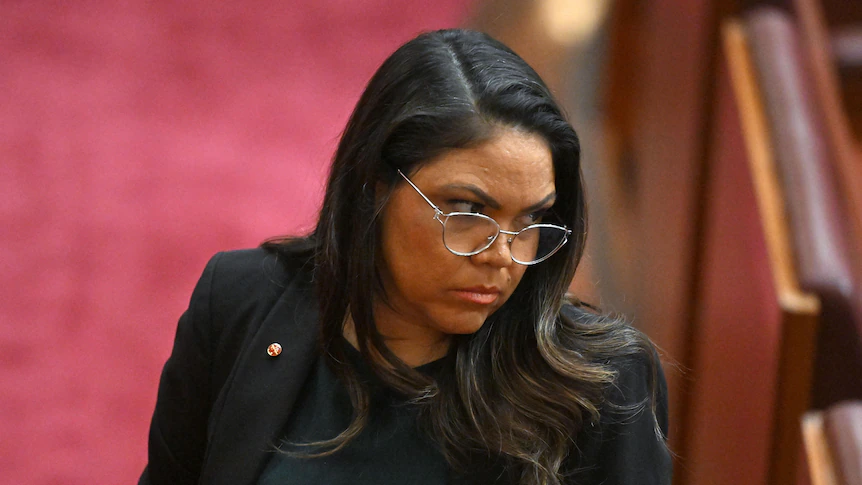Washington Post Fires Columnist Karen Attiah Over Over Social Media Posts After Charlie Kirk’s Death
By Siddhi Vinayak Misra
Copyright breezyscroll

Longtime Washington Post columnist Karen Attiah says she was abruptly fired last week over “unacceptable” social media posts about the assassination of right-wing activist Charlie Kirk. The decision has ignited debate about free speech, media accountability, and the shifting editorial direction of one of America’s most influential newspapers.
Who is Karen Attiah?
Karen Attiah joined The Washington Post in 2014 and quickly rose to prominence as the founding editor of its Global Opinions section. She is perhaps best known for hiring Saudi journalist Jamal Khashoggi, who was assassinated in 2018 by Saudi agents, and for her vocal advocacy of press freedom and accountability.
Over her decade at the Post, Attiah received multiple awards, including the 2019 George Polk Award and the National Association of Black Journalists’ “Journalist of the Year.” Until her termination, she was the last full-time Black columnist on the Post’s opinion staff.
Why was she fired?
Attiah revealed on Substack that her contract was terminated after the Post accused her of making “unacceptable” and “gross misconduct” posts on Bluesky following Kirk’s killing.
The newspaper reportedly claimed her comments endangered the safety of colleagues, though Attiah rejected those allegations as “false” and “without evidence.”
She insists her posts were measured, pointing out that:
She condemned America’s tolerance for political violence.
She emphasized that no suspect or motive was initially known in Kirk’s death.
She made only one direct reference to Kirk, quoting his past remarks about Black women lacking the intelligence to be taken seriously.
“My commentary received thoughtful engagement, support, and virtually no public backlash,” she wrote. “They rushed to fire me without even a conversation.”
The backdrop: Kirk’s assassination and online backlash
Kirk, the 31-year-old founder of Turning Point USA and a leading MAGA voice, was assassinated earlier this month. His killing immediately polarized U.S. politics, with right-wing influencers monitoring and publicizing critical or mocking posts about him.
This has triggered a wave of suspensions and firings:
MSNBC cut ties with analyst Matthew Dowd after he called Kirk “divisive” and accused him of pushing “hate speech.”
Musicians, academics, and public employees have also faced professional repercussions for anti-Kirk comments.
The coordinated campaign reflects how media companies and employers are increasingly pressured to respond to controversial online speech — especially when it involves high-profile political figures.
Attiah’s defense: A warning about double standards
In her statement, Attiah argued that her posts were not celebrations of Kirk’s death but a reminder of America’s recurring pattern: violence by white men is often minimized or excused.
She pointed to 22-year-old Tyler Robinson, now accused of carrying out the shooting, and noted that early coverage framed him as a “good, all-American suburban kid.”
“This cycle has been documented for years,” Attiah wrote. “My words on absolution for white male violence have proven prescient.”
Internal tensions at The Washington Post
Attiah’s firing comes amid broader upheaval at the Washington Post:
New opinion editor Adam O’Neal was hired earlier this year to steer the section toward defending “free markets” and “personal liberties,” a shift reportedly encouraged by owner Jeff Bezos.
Several veteran columnists, including Pulitzer Prize winner Jonathan Capehart, have taken voluntary buyouts rather than adjust to the new direction.
Attiah said she had a tense standoff with O’Neal but chose to remain — only to be dismissed after her posts.
She emphasized that her departure marks the loss of the last Black full-time opinion writer at the paper.
“Washington D.C. no longer has a paper that reflects the people it serves,” she wrote. “What happened to me is part of a broader purge of Black voices from academia, business, government, and media.”
Why this matters
The episode raises several pressing questions for journalism, free speech, and U.S. politics:
Free speech vs. employer standards: Should journalists be penalized for expressing controversial but fact-based views on personal platforms?
Media credibility: Does firing outspoken columnists erode trust in institutions that claim to champion diverse voices?
Cultural pressure: To what extent are companies bending to online campaigns designed to punish speech that challenges political figures?
Representation in media: Attiah’s exit highlights persistent concerns about newsroom diversity, particularly in opinion sections that shape national discourse.
Looking ahead
Attiah says she will continue publishing on Substack and advocating for press freedom. Meanwhile, the Washington Post has yet to issue a formal explanation, fueling speculation about whether this was an editorial decision, a management directive, or a response to political pressure.
The incident underscores how the fallout from Kirk’s assassination is extending far beyond partisan politics. It has become a test case for how America’s media, institutions, and corporations navigate the fraught intersection of free expression, online backlash, and racial representation.
Karen Attiah, a decorated Washington Post columnist, says she was fired for “unacceptable” social media posts following Charlie Kirk’s assassination. She argues her comments were measured and focused on America’s tolerance of political violence, not celebrations of Kirk’s death. The firing comes amid a conservative editorial shift at the Post and a wave of professional consequences for individuals criticizing Kirk. The case raises deeper questions about free speech, diversity in media, and political pressure on newsrooms.



